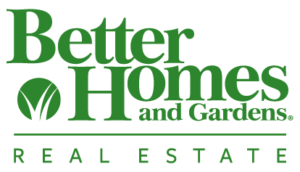Run a Google search for “Where should I live in…” and fill in any major city in the U.S. and I bet you will be hard pressed to find any national or local real estate brand on the first page of results. All of the valuable local information that goes into advising a prospective buyer on location seems to be in a Realtor’s head or is scattered all over the web on dozens of disparate sites.
The emphasis today is on property listings and not local content or consultative services helping consumers match their needs to the right community. Hyper-local content is the most critical information for a real estate buyer to have when they are trying to answer 2 of the most important questions BEFORE they even conduct a single property search which are: Where should I live and do I want to live there?
Answering these two questions used to be something you could find by picking up a local newspaper or scouring a town/community website.
The nation’s latest news print circulation stats (down 7%)*, ad revenue numbers (down 29% in second quarter)** and newsroom staff cuts (down 10%)*** clearly indicate certain information staples won’t be around for forever. Couple that with town budget cuts at the tail end of this recession and there is no way your local government is going to deem this type of information gathering and delivery critical. With both sources of information on the decline it is both natural and imperative for the local broker to take the baton as the arbiter of hyper-local information.
Hyper-local content can span a single city block all the way to a 521-square-mile county. In a real estate capacity it can take the form of the following topics below:
- After school programs and strength of district sports programs
- Local lifestyle activities right down to micro needs such as the cost to join the town pool
- Express commute time to major metropolitan areas
- Availability and cost of parking for commuter trains
- Local restaurant recommendations
- Preschool programs
- Last time a tax assessment was conducted
- Closest supermarket with good organic selection
- Summer concerts at the local colleges
- Local recreation programs
- Days and times local farmers market is open
This will dawn a new era of a real estate broker as editor in chief of their website and its agent constituency becoming the field reporters who back-fill all of the valuable hyper-local content. If the agent, as the local reporter model doesn’t work, then there should be a wealth of talent in the market as a direct impact of the aforementioned newsroom layoffs to cherry pick from.
The most direct benefit of unique content creation is the natural search rankings and traffic that result. If the strategy proves successful then the top search engines will recognize the local broker website as THE authority within the community. Also consider the fact that some studies suggest that over a third of search traffic for real estate keywords includes location names and local references.**** This translates into a qualified prospect that is more likely to be closer to working with a real estate company and transacting.
Currently this concept is being executed in a variety of different forms on sites like localism, curbed, EveryBlock, Placeblogger and Patch. The outside.in publishing platform can enable brokers to create and customize discrete Neighborhood News Pages for every community in their market. This is all fed by RSS feeds of blogs, local media web sites and even Twitter. Imagine Twitter streams organized by location and topic constantly flowing on a broker’s site with posts like “#MahwahNJ School board just voted against music program” or “#RamseyNJ Just ate at Varka, amazing Mediterranean food.”
Domus Consulting’s Breaking News network won an Inman Innovator award and is currently applying this concept to cities across America. Tewspaper is an online newspaper built solely through social media. The key distinction is that a web site’s content doesn’t have to be maintained via an archaic CMS anymore as it can be populated seamlessly by a conversation stream.
As the Realtor engagement point moves closer to the transaction it is imperative to capitalize on this opportunity. Hyper-local content isn’t something a large national brand can execute successfully as it requires a group of people who typically live, eat, and send their kids to school in the same community as they transact real estate. Real Estate is about relationships and trust through written word is the best way to attract prospective customers and retain them far after the transaction has concluded.
In the coming months we will be piloting this concept with a few brokers in the Better Homes and Gardens Real Estate network. It will give us a great opportunity to witness the strengths and weaknesses so that we can improve a model that may work for the masses. I invite you to offer comments and look forward to engaging in a healthy dialogue to shape the brokerage of the next generation.
*Tim Arango, “Fall in Newspaper Sales Accelerates to Pass 7%” The New York Times, April 27, 2009
**Greg Bensinger, “U.S. Newspapers Post Steeper Declines in Ad Revenue”, August 27, 2009
***Michael Liedtke, “APME survey: Newspaper cuts clip younger workers”, Associated Press, August 31, 2009
****WAV Group, “Geo-Domain Targeting trending to assist Real Estate Marketing”, April 2009








